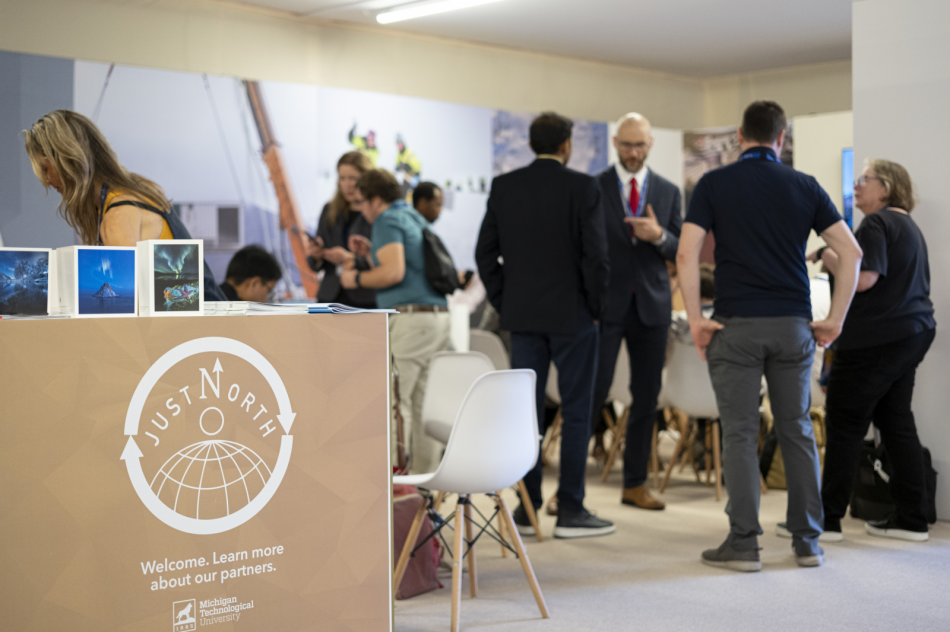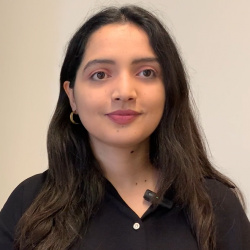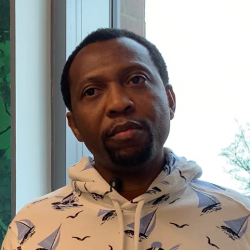COP28
University of Sussex Business School and JUSTNORTH attended COP 28
30 November - 12 December 2023, Dubai UAE.
- What is COP 28?
The 2023 United Nations Climate Change Conference (COP 28). It serves as the formal meeting of the UNFCCC parties to negotiate and agree action on how to tackle climate change, limit emissions and halt global warming. The United Nations Climate Change Conferences are the world's highest decision-making body on climate issues and one of the largest international meetings in the world. They host negotiations on how countries can reach the goal of an increase of no more than 1.5°C warming by 2100.
- Why we were at COP 28
Our research project JUSTNORTH attended COP 28. The project is about economic decision making in the Arctic, a vast area hugely affected by temperature rises. It is a joint research collaboration between the University of Sussex Business School's Sussex Energy Group, Michigan Tech and UIT in Norway.

Making a positive change in the world with our research

Sustainable Development MSc
Watch Amal's video on COP28

IDRIC project
Our research relating to COP28 themes
- Dr Bipashyee Ghosh talks about system transformation and writes about transformative innovation policy.
- Professor Chirantan Chatterjee discusses the effects of green transitions on nations.
- Dr Marie Claire Brisbois investigates making energy transitions happen in a fair way.
- Dr Saurabh Arora researches SDGs and techno-scientific innovations.
- Dr Siavash Ali Madadi Jani's project looks at retrofitting UK homes.
- Dr Richard Tol's work on the fiscal implications of climate policy.
- Our research on using land to fight climate change.
- Our work on how cities can digitalise their energy systems.
Climate Finance
We're working to promote collaborative research in sustainable finance, development and economics. Our research encompasses climate finance, social and environmental disclosure, and the reporting and evaluation of Environmental, Social and Governance.
Tackling issues in climate finance
Technology and innovation
Inclusion
Our research engages with people, tells their stories, looks at the evidence and informs policy makers. We're looking into community wealth building, where citizens and local communities are key stakeholders, owners and decision-makers in new green economies. Local work on the Sussex Coast brings people together to tackle sustainable land use.
Business School research video
- Video transcript
The world is increasingly complex, interconnected, fast moving, and that creates both problems and opportunities for society, for governments, and for people's lives.
Globally we’re facing constantly evolving challenges.
Research is an incredibly powerful tool for change in our society, just small improvements in our understanding can have really fundamental changes in outcomes.
Here in the Business School our research is driven by big global challenges.
We’re not here to do theory for theory’s sake, we’re trying to create solutions.
Trade affects all of our lives in major ways. The world trading system is facing some major challenges to do with geopolitical conflict, climate change, the rise of the digital economy and supply chain resilience.
The work we do is very much focused on understanding how trade affects people. It’s important that policy takes into account those equity issues, those distributional issues and is inclusive. If you’re going to do research that has an impact, you need to collaborate.
We need to bring different groups of people together, we need to bring different academic voices from different academic disciplines to find new solutions.
Climate change is one of the biggest challenges that we face in today’s world. We have a chance still to do something about it.
We have a large number of researchers looking at issues such as industrial decarbonisation, energy demand reduction, community level action.
We also look at things like climate finance, so making sure that we have the right business models that can actually get us to net zero by 2050.
Some of the solutions that we are looking at include policy measures, what are the sort of technological solutions that we need in energy demand reduction, and lastly, what are the behavioural messages that we might need in terms of people changing the way they use energy going forward.
Digital transformation of work is going to be one of the biggest disruptive changes we have, equivalent to the Industrial Revolution.
What we’re trying to understand is how do firms adopt these technologies and why they don’t, who are connected or disconnected and how this affects workers in terms of the quality of their jobs.
Leadership, literacy and infrastructure are the really key areas that we need to focus on.
The ultimate goal is to inform key actors how to develop a digital transformation that is inclusive and constructive so that it will not lead to increased forms of inequality.
What we really care about it our work having a tangible impact on policy and policy decisions. We’re doing it in order to improve the way society functions and the decisions taken by governments.
We are committed to using our research on delivering better outcomes for people, for policy and for practice, to create a fairer society and a more equal and prosperous world.